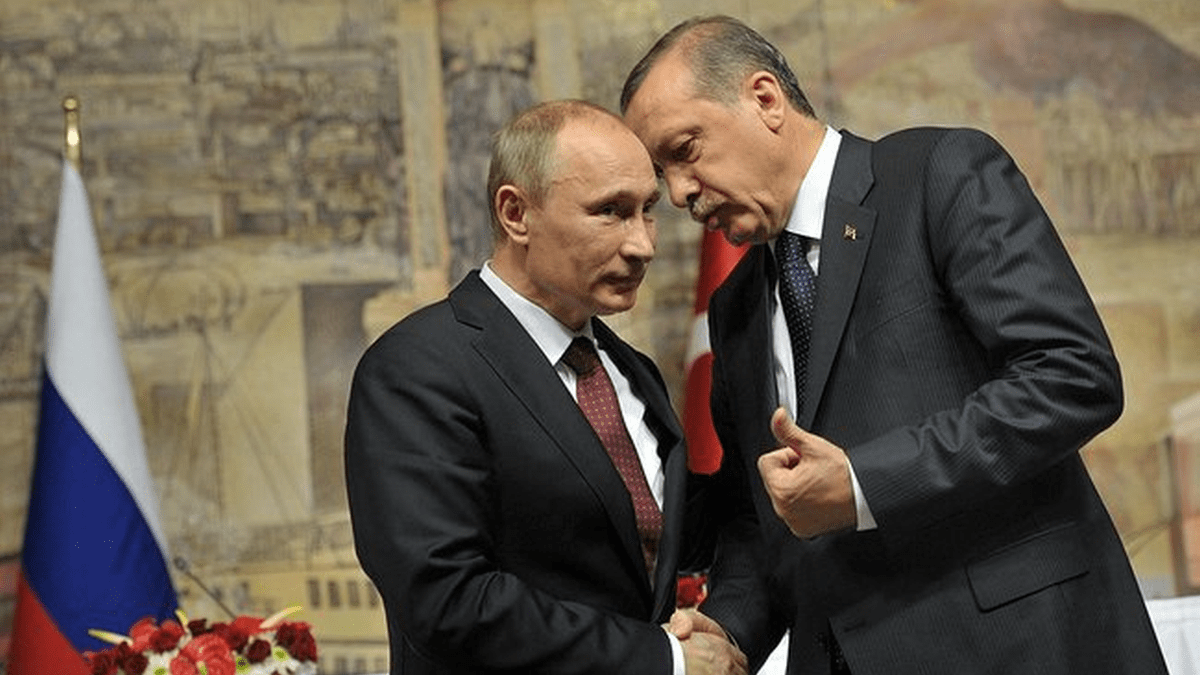Analysis from Poten & Partners looks at the influence of Turkey’s geographic and political positions on the tanker trade
Since the Russian invasion of Ukraine and the sanctions that followed, the primary emphasis of the oil and tanker industry has been to try to answer two key questions. Firstly, who will buy the Russian oil that is not going to traditional Western customers, and, secondly, where will Europe source its crude (and products) after the bloc implementing an import ban in December of this year?
With respect to the first question, the focus has been on two countries: China and India. Both countries are large oil importers and have refrained from publicly criticizing President Putin for his aggression. China and India have continued to import Russian oil and, in the case of India, imports have dramatically increased.
But a third country that has increased its imports from Russia, and received much less attention, is Turkey.
Turkey has dramatically boosted imports of Russian crude oil since the invasion of Ukraine in February 2022. In this week’s Tanker Opinion, we will review these developments in more detail and try to determine possible future scenarios and their potential impacts on the tanker market.
Turkey is an important country for the oil and tanker markets. It is a key transport hub for oil and gas supplies as they move from Central Asia, Russia, and the Middle East to Europe and other Atlantic markets. The country is strategically located at the crossroads between the oil-rich countries of the former Soviet Union (Russia, Kazakhstan, Azerbaijan) and Middle East, and large energy demand centres in Europe. In waterborne energy trades, the Turkish Straits are home to one of the world’s busiest chokepoints, through which an average of two million barrels per day (b/d) of crude oil has flowed throughout 2022, to date.
Turkey, unlike several European countries, which reduced oil imports from Russia after the invasion of Ukraine, has increased its Russian oil imports dramatically in recent years. In 2017, Turkey’s seaborne crude oil imports averaged about 434,000 b/d, and less than 10% of that was sourced from Russia. By 2019, Turkey’s seaborne imports had increased to almost 600,000 b/d. A significant portion of the additional oil came from Russia and their market share in Turkey’s seaborne imports grew to 37%.
During the pandemic, oil demand in Turkey fell and Russia’s market share was cut to below 20%. However, since Russia’s invasion of Ukraine, Turkey’s crude imports from Russia have more than doubled from 2020 levels, to make up almost half of the country’s total imports. And in October, we estimate that Turkey will have imported about 423,000 b/d from Russia, out of a total of 707,000 b/d, representing 60% of seaborne imports. For the purpose of this calculation, we assume that 10% of the crude oil that is exported through the pipeline of the Caspian Pipeline Consortium (CPC pipeline) is in fact Russian crude, with the remaining barrels originating in Kazakhstan.
An interesting fact (and an important one for the tanker market) is that the biggest increase in Turkey’s imports originate in Russia’s Baltic ports, not from the Black Sea. Given the geographic proximity of Turkey to Russia’s Black Sea ports and the oil that flows from them, this is somewhat counter-intuitive. However, it has given an unexpected boost to the tanker market, given the longer-haul nature of this trade route.
What are the expectations for this trade relationship going forward? Will Turkey continue to import large volumes of Russian crude after the EU ban goes into effect? Turkey has signalled that it may do just that. Turkey maintains close relationships with Russia, and the two countries’ presidents are in regular communication. At the same time, Turkey is a member of NATO and has long had aspirations to join the EU. We expect that Turkey will chart its own course, and it may therefore be difficult to extrapolate current trends.
If Turkey decides to import even more oil from Russia, it may benefit the tanker market to the extent that it continues to import the marginal barrels from the Baltic. This may release volumes of crude oil from North Africa and the Middle East to move to Europe and other Asian countries.
If Turkey changes course and reduces its purchases from its neighbor — either for political reasons or if the EU insurance bans make it difficult to source tankers to make the trip — this could increase the competition for non-Russian crude. Turkey is also somewhat exposed to disruptions to the CPC pipeline. Any problems would force Turkey to source more crude from further away.






